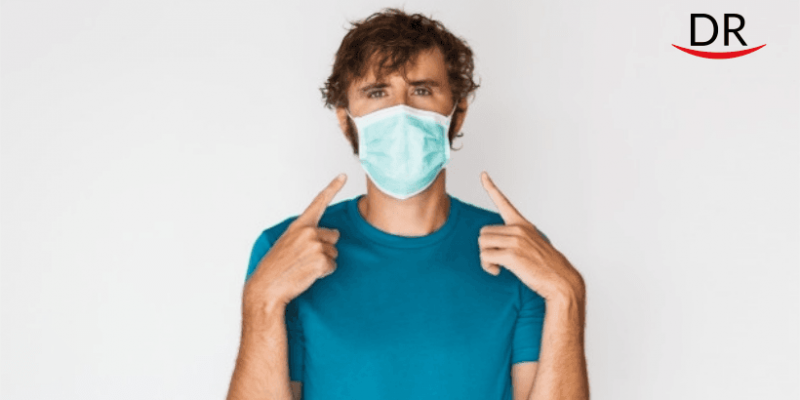Dentists say frequent wearing of a face mask can be a cause of gum disease and tooth decay. Since the introduction of the mask regimen in many countries, the number of patients with such complaints has increased dramatically.
"We see gum disease and tooth decay in people who have never complained about it before," said Dr. Rob Raimondi. “About 50 percent of our patients suffer from problems that started after wearing masks. We even came up with a name for "Mask Mouth".
While some Americans claim that wearing masks exacerbates respiratory illnesses, much less attention has been paid to problems affecting the teeth and gums.
Most people breathe through the mouth when wearing a mask, which inadvertently leads to a decrease in saliva and hence dry mouth. Not to mention, saliva fights bacteria, cleans teeth and neutralizes acid in the mouth and helps prevent tooth decay and gum disease.
At the same time, wearing masks has made people more attentive to oral health.
“Patients come to us and say:“ Wow, my breath smells, I need a cleaning. But when you smell bad breath, it means that either you already have periodontitis or you have a lot of bacteria sitting on your tongue due to dry mouth, ”said dentist Marc Sclafani.
He encourages people to drink plenty of fluids, regularly brush and floss their teeth, and try to breathe through their nose if they are wearing a mask.
Meanwhile, doctors have denied a number of other conspiracy theories associated with wearing masks.
One of the main claims is that masks cause a toxic buildup of carbon dioxide in the blood known as hypercapnia. This happens when someone breathes in recirculated air – usually in confined spaces without ventilation – with a decrease in oxygen and an increase in CO2 level. This causes shortness of breath, headache, confusion and, in extreme cases, an irregular heartbeat.
One small study found that nurses wearing N95 masks on a 12-hour shift had "significantly increased" CO2 levels and complained of headaches and shortness of breath. But these symptoms were not significant enough to be considered hypercapnia. However, any accumulation of CO2 outside the hospital is unlikely and can be avoided simply by ventilating the area.
One small study found that nurses wearing N95 masks on a 12-hour shift had "significantly increased" CO2 levels and complained of headaches and shortness of breath. But these symptoms were not significant enough to be considered hypercapnia. However, any accumulation of CO2 outside the hospital is unlikely and can be avoided simply by ventilating the area. But these symptoms were not significant enough to be considered hypercapnia. However, any accumulation of CO2 outside the hospital is unlikely and can be avoided simply by ventilating the area.
Another claim circulating on Instagram and Facebook is that wearing a mask increases the likelihood of contracting the coronavirus because the material “traps” and “fixes” moisture particles. But the epidemiologist Professor Keith Neal of the University of Nottingham in the UK argues that this is far from reality.
"The mask is designed to stop the spread of moisture – you cannot get infected if you are already infected," he said.
Source: dailymail.co.uk




















Comments